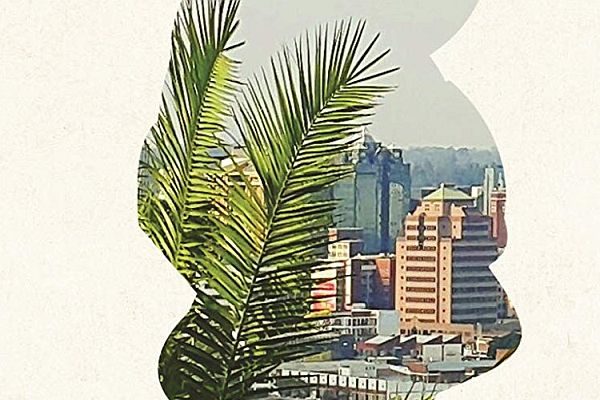From Georgetown, Guyana to London, England, sugar and ideas have long circulated. But the history of the Booker prize is itself imperial, its funding originating from agribusiness conglomerate that has its routes in the nineteenth century sugar trade. Where many are aware that Cecil Rhodes owned large swathes of what is now Zimbabwe, fewer recall the Booker’s reliance on slavery in Guyana.
A search of the Legacies of British Slave-ownership database with the keyword ‘Booker’ reveals that, from the 1820s onward, this Booker sugar concern enslaved 53 African diasporic subjects. In light of this history, what are we to think of the prize’s focus on writers from the former colonies? Does it represent a legacy of dispossession covered over by tokenism, or is rather a case of truly talented writers of colour decolonising an imperial legacy? The structures of intersection are, as so often, produced most of all in ambivalence.
Depending on your sense of historicity, the Booker once ran on sugar. Depending on your sense of temporality, it runs on sugar still. Through the eighteenth and nineteenth centuries, sugar flowed from the Americas to Britain as a fungible resource whose extraction was rendered possible by the other trade we know so well, the trade in black bodies: the middle passage. This traffic in bodies that are exchanged with raw materials – sugar most of all – will also be familiar to Pasifika readers in Australia because of the long-standing imperial relationship Australia had with blackbirding and the indenture of Pasifika labourers in the nineteenth and early twentieth century.
To reposition ourselves in the Black Atlantic, the triangular trade and its aetiological connection to today’s Man Booker Prize, we might trace the key dates in the history of what began as a company known as Booker Brothers, McConnell and Tate. This British imperial sugar concern, holding plantations and concerns throughout the Caribbean, principally controlled Guyana and its sugar production (whose effects and provenance we have already noted). In The Postcolonial Exotic, Graham Huggan writes:
The company, initially formed in 1834 to provide distributional services on the sugar-estates of Demerara (now Guyana) achieved rapid prosperity under a harsh colonial regime At the onset of independence the company was relocated to London, which remains its headquarters today. It was in London in the early 1960s that it established its book division, primarily designed to buy up copyrights of famous popular-fiction writers (Agatha Christie, Ian Fleming, etc.). This proved a lucrative enterprise, prompting the company a few years later to found the Booker Prize for literature in English. Sponsored by Booker plc but administered since 1971 by the charitable concern the Book Trust (formerly the National Book League), the Prize, first awarded to P. H. Newby (Something to Answer For) in 1969, soon grew into one of Britain’s most recognizable cultural institutions.
Huggan goes on to document the vicissitudes of the prize committee itself but we might also return to the opening tension between tokenisation and decolonial reformation of such an organisation. After all, many institutions retain colonial legacies while seeking to redress past crimes, embedded as they are in trans-imperial formations. Potentially tokenising people of colour and subaltern subjects, these trans-imperial formations banalise all sorts of evil – but it does not follow that the writers who take up their mantle go smilingly into the limelight under the conditions laid down by (post)colonial institutions. It is at this moment when the agency of authors of colour must be defended.
Queer Scottish author Douglas Stuart won this year’s Booker Prize for his debut novel Shuggie Bain – and deservedly so. He emerged from a diverse field of shortlisted authors that spans the globe. From Tsitsi Dangarembga’s vivid portrayal of Harare’s varying class echelons to Brandon Taylor’s campus novel of discrimination in the academic sciences in a fictionalised Madison-Wisconsin, the shortlist traversed a terrain concerned with race, gender, sexuality, class and empire.
To take one example, Dangarembga’s This Mournable Body begins in a Harare of the late 1980s. Tambudzai, the protagonist passed through the trials of a boarding school in The Book of Not (2009). In Nervous Conditions (1988), she was the little
girl Tambu who herself accomplished her own education by selling Mealie (corn) cobs in the streets of a rural Shona village. The Mournable Body opens in a youth hostel and close with upward elite mobility for Tambu within the Tourist concern of her patronising boss. The novel tracks through memorial passages of time to inscribe the consequences of these changes of wretched fortune – with Fanon’s notion of the decolonising battles of elites in the background. And, as it does Tambu comes to ask:
When you were young and in fighting spirit, growing mealie cobs in the family field and selling them to raise money for your school fees, you were not this person you have become. When and how did it happen?
Here, Dangarembga employs Gerard Genette’s narratological technique of convergence to bring the young Tambu into connection with the contemplation of consequence that dwells in the mind of Tambudzai in the mid-1990s. This is a granular work of decolonial thinking, one linked into agencies that challenges transcolonial legacies all the way back to the offices of the Booker in London.
Image: a detail from the cover of This Mournable Body






